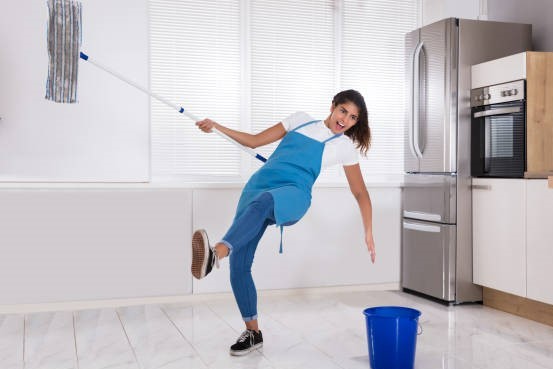At the mention of the word ‘accident,’ the average person’s mind would most likely paint up a scenario of two vehicle ramming into each other on the highway or an unfortunate outdoor mishap.
Statistics however proves to us that death could be closer to us than we think.
According to the statistics by the National Safety Council, deaths from drug overdose and older adult falls represent the larger percentage of home accidents.
Because we all want our homes to be as comfortable and safe as possible, this might sound a little scary and alarming. The good thing, however, is that most home accidents are preventable.
Below are some of the most common home accidents and how to prevent them:
Slips and falls
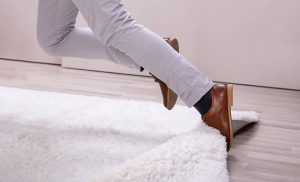
Falls account for a large chunk of the percentage of injuries and deaths recorded at home. While, people of any age can be affected, kids and older adults are the most vulnerable.
Below are some tips that can be used to prevent falling at home.
Keep your indoor surroundings well illuminated: This is important to have a clear view when navigating the home so as to prevent bumping into obstacles like walls, furniture, locked doors and even incoming humans or pets. It also increases chances of averting incoming dangers
Install handrails for support: this is needed for the support it offers while climbing up and down the stairs, especially in a house where there are kids or older people. Grab bars should also be positioned where necessary.
Clean liquid mess immediately: endeavor to mop up spilled water or other liquids as soon as possible to further reduce the chances of slipping and falling in your home.
Poisoning
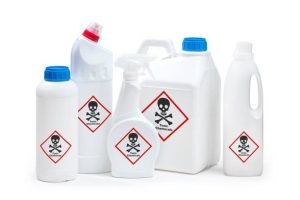
While this may bring flashbacks of scenes from “Jealous lovers” on CSI or other crime channels, the leading cause of poisoning at home, according to NCS is actually said to be from overdose.
Cleaning products, expired foods and other useful home chemicals can be other sources of poisoning at home.
Follow these tips to avoid home poisoning.
Keep medicine, cleaning agent and chemical stores on lock: it is important to always ensure that medicines and harmful agents are always under locks to keep them out of the reach of children.
Always label medicines correctly: ensure to properly tag medicine bottles to avoid confusion while using them.
Return medicines and cleaning agents immediately after use: this is important, so as not to forget them where kids can be able to get access to them.
Stick to recommended dosage and always check expiration date: it is important to always seek medical advice before taking any drug. This is important to avoid possible dangers like overdosing and drug resistance. Expired drugs should be properly disposed off too.
Burns and scalds
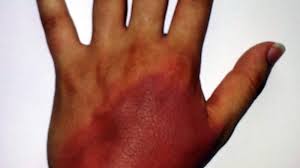
Burns and scalds are another leading cause of indoor injuries. This could either be due to fire hazards, contact with hot water or hot surfaces. The following are some helpful tips that can help avoid burn accidents in the home:
Keep hot water and objects away from children: always endeavor to keep hot water jugs and containers away from the reach of kids to avoid fatal spills. Kitchens should be out of bounds to kids and always be under locks. Pressing irons should also be kept away.
Cut away distractions while cooking:watching movies or taking a nap while cooking or using the microwave can cause a major fire accident at home. Never leave your cooking business unattended to.
Use a napkin: cooking pots or pans without handles should never be under-estimated. It could be hotter than you think. Use that napkin!
Install smoke alarms at home.
Cuts and stabs
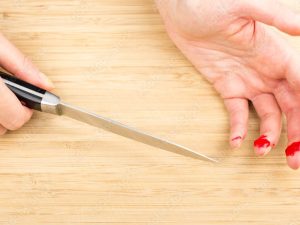
The following tips can help to avert cut and stab wounds at home.
Keep knives and sharp objects out of reach: ensure knives and other sharp objects are properly kept, whether in use or not. To avoid them falling off, keep them on a flat surface or on a rack with the sharp edge well secured.
Never leave knife pointed out on the go: always hold knife in by the handle while moving with it. Walking with a pointed knife could cause a fatal accident when you bump into someone.
Keep needles and pins away: needles and pins should be kept away from couches, beds and floors to avoid sitting, stepping or lying on them mistakenly. This is also to avoid kids putting them in the mouth or swallowing them.
Electric shock
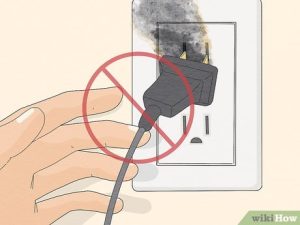
Electric hazards can be very fatal. While they could cause shocks ranging from mild to mortal, they could also start a fire. Proper care needs to be taken to ensure the home is free of them. The following tips would help a great deal.
Avoid socket overloading: plugging multiple appliances or devices into a socket hole is not advisable. Also heavy appliances like refrigerator, burners, and washing machines should have their own outlets.
Cover all exposed channels: naked wires should be treated with all urgency. Ensure they are taped temporarily and changed as soon as possible. Unused sockets should be covered with socket plugs for the safety of kids around.
Disconnect electric devices from electricity immediately if they fall into water or liquid. This is highly important to avoid shocks.
Stay away from electricity: there is a reason why most sockets and power boxes bear the danger logo. Always get the help of a
professional when needed.
Drops and hits

To avoid the risk of being hit by falling heavy items at home, the following precautions should be taken:
Arrange items in order of weights: the much heavier items should be stored closer to the ground while the lighter one can stay up. You don’t want the heavy stuffs falling on you.
Hang items properly: check to ensure items are properly in place when hanging them. If they are to be screwed to the wall then make sure the screws are well fitted to the wall to avoid them falling down unexpectedly.
Conclusion
Just like the popular cliché says; a stitch in time saves nine, learning to prevent dangers helps save us from unbudgeted expenditure and avoidable stress.
If a safe and harm-free home is what you crave, then the above tips would go a long way in helping you achieve that.

